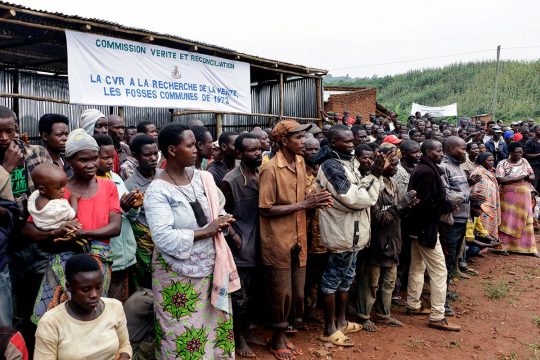Major-General Godefroid Niyombare on Wednesday announced the ouster of President Pierre Nkurunziza of Burundi over his controversial bid to run for a third term in office. The apparent coup took place after almost two weeks of street protests in the capital, Bujumbura, and while Nkurunziza was away in Tanzania attending a summit.
Here's what we know about the man behind the coup attempt:
During the 1993-2005 civil war, he fought among Hutu rebels alongside Nkurunziza and against the government forces of then president Pierre Buyoya, a Tutsi.
After the war, he served in several senior positions before being appointed in 2009 to the post of army chief-of-staff, becoming the first Hutu to occupy that position.
His wife, Spès Niyonkuru, was a member of parliament for the ruling CNDD-FDD party in southern Rutana province.
Niyombare later served as ambassador to Kenya. On his return, he rejoined army headquarters before being named head of the intelligence services. He only stayed in this job for three months before being fired by presidential decree.
His sacking was widely linked to his alleged authorship of a memo suggesting Nkurunziza could endanger himself if he ran for a third term, a bid many regard as unconstitutional and in violation of a 2000 peace accord.
Niyombare justified the overthrow of the president on a number of other grounds, in addition to his decision to run for a third term. According to Niyombare's announcement, these include:
- “The cynicism and sadism that has characterised the attitude of Pierre Nkurunziza.”
- “The vertiginous impoverishment of the people of Burundi over the last 10 years.”
- “A worrying degradation of relations between the people and security forces over last two years.”
He also said:
- “The use of negative forces in Burundi constitutes a threat to seriously destabilise not only Burundi but also neighbouring countries.”
- “Nkurunziza’s regime has been marked by acts of vandalism of national resources, by unspeakable crimes of blood and massive violations of human rights.”





